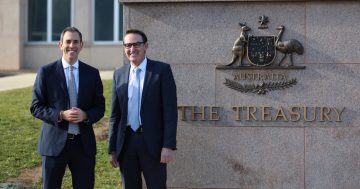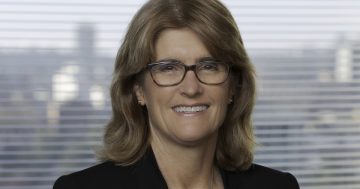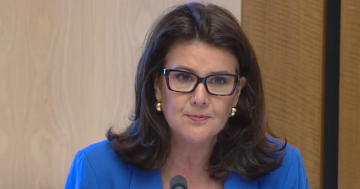
Treasury Secretary Steven Kennedy has been reappointed for another five years. Photo: Treasury.
Treasury Secretary Steven Kennedy will remain in the department’s top job for another five years.
Anthony Albanese announced the continued appointment of Dr Kennedy in a statement on Friday (7 June).
“I am pleased to announce the Governor-General has accepted my recommendation to reappoint Dr Steven Kennedy PSM as Secretary of the Department of the Treasury,” the Prime Minister said.
“Dr Kennedy is one of the country’s most experienced public servants, and his diligence and dedication represent the best traditions of the Treasury.
“Having served for more than 30 years in the public service, Dr Kennedy’s extensive experience and outstanding leadership will be an ongoing asset for the department and the government as we continue to implement our economic reform agenda.”
The new five-year appointment will kick in on 2 September when his current tenure expires.
Dr Kennedy was appointed Secretary of the Department of the Treasury on 2 September 2019.
He was previously secretary of the Department of Infrastructure, Transport, Cities and Regional Development from September 2017 to August 2019.
Other senior positions he has held in the Australian Public Service have included deputy secretary roles at the Department of the Prime Minister and Cabinet, the Department of the Environment and the Department of Climate Change and Energy Efficiency.
Dr Kennedy was awarded a Public Service Medal in 2016 for his outstanding contributions to climate change policy.
The Treasury Secretary appeared before Senate Estimates this week (3 June) and predicted Australia’s economic growth to be “very weak” due to the effect of higher interest rates and inflation.
“Overall, we expect real GDP to grow by 2 per cent in 2024-25,” he said.
“This is more subdued growth than we expected at MYEFO (mid-year economic and fiscal outlook).”
He also conceded that Treasury’s population growth predictions were wrong – describing his department’s performance on that front as “very poor”.
“We simply underestimated how much students would flow back [following the COVID pandemic],” Dr Kennedy said.
“Forecasting net overseas migration during and since the pandemic has proved challenging.
“The 2023–24 Budget forecast for the year 2022–23 was 24 per cent lower than the latest ABS estimate.
“Other countries have faced similar challenges, including New Zealand where the equivalent forecast was 42 per cent lower than the latest estimate, and the United Kingdom, where the forecast was 58 per cent lower.
“Following the relaxation of COVID-19 border restrictions, we saw a large catch-up in arrivals as many people who wanted to come to Australia to work or study during the pandemic arrived in a compressed time frame.
“While there has been a catch-up in arrivals, we are yet to see a pickup in departures, predominantly because many of the international students who have arrived over the past couple of years are still studying and are yet to depart.”





















